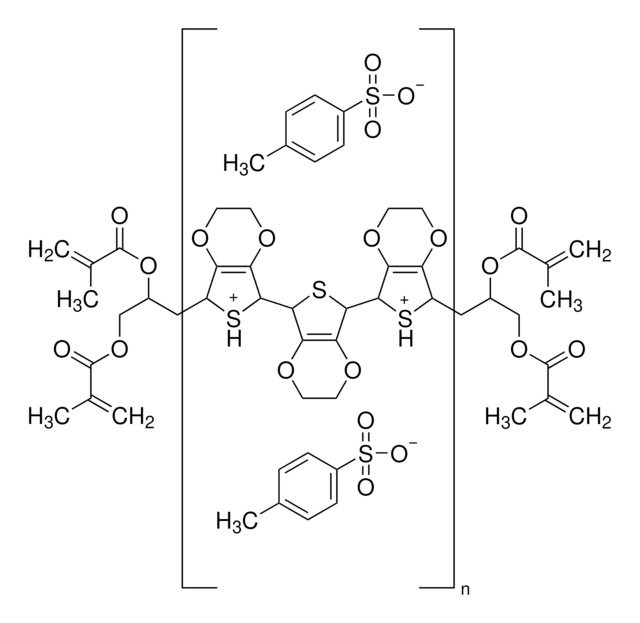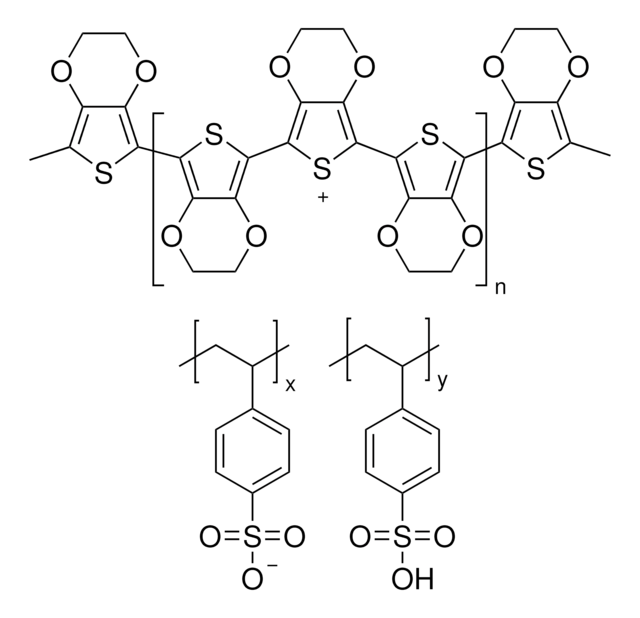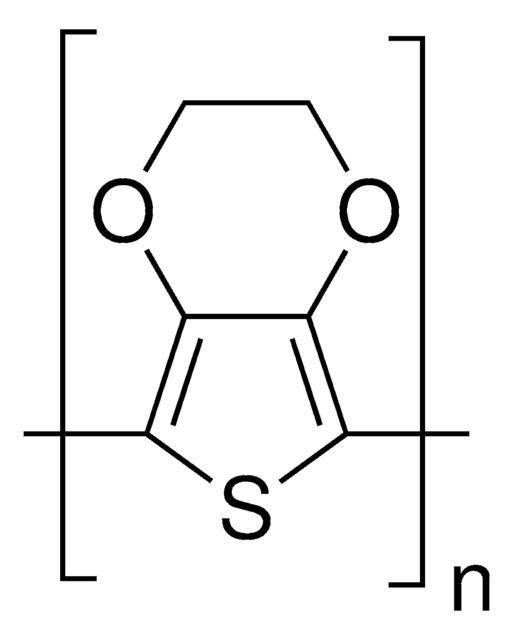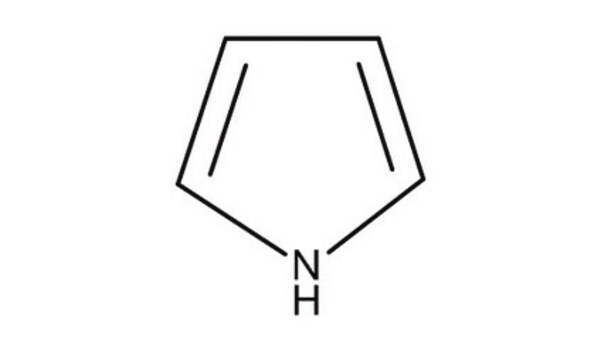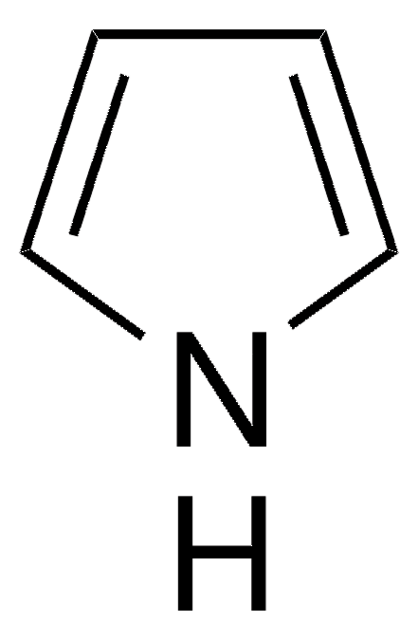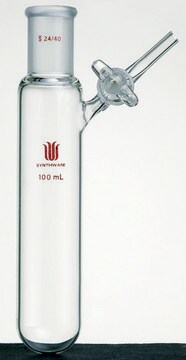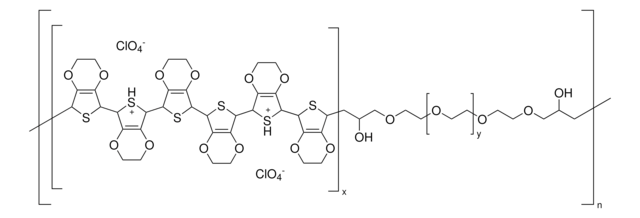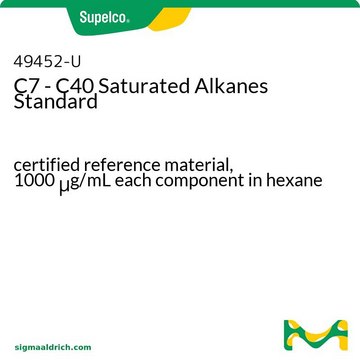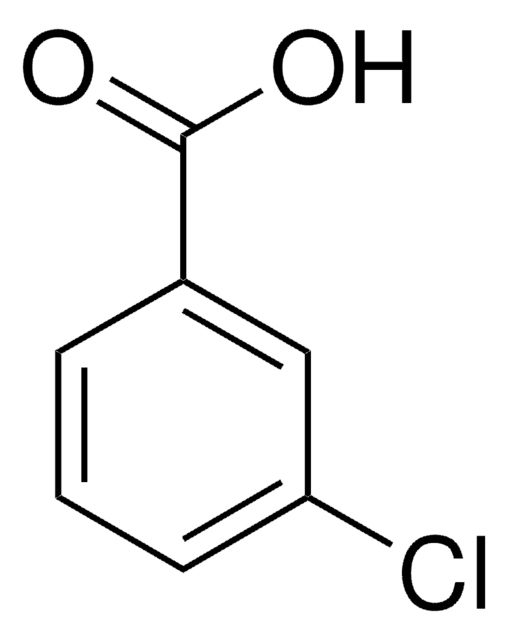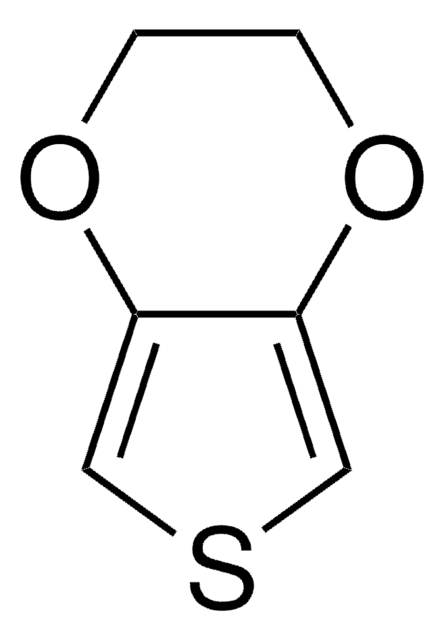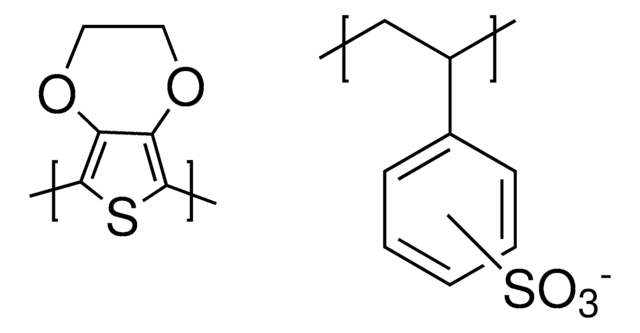649821
PEDOT
tetramethacrylate end-capped solution, 0.5 wt. % (dispersion in nitromethane), contains p-toluenesulfonate as dopant
Synonym(s):
Oligotron™ NM, PEDOT, PEDOT, tetramethacrylate end-capped
About This Item
Recommended Products
product name
Poly(3,4-ethylenedioxythiophene), tetramethacrylate end-capped solution, 0.5 wt. % (dispersion in nitromethane), contains p-toluenesulfonate as dopant
mol wt
~1,360-1,600 g/mol (methacrylate equivalent weight)
average Mn ~6,000
contains
p-toluenesulfonate as dopant
composition
ethanol, 5.8 wt. %
isopropanol, 0.3 wt. %
nitromethane, 93.4 wt. %
Oligotron™ tetramethacrylate, 0.5 wt. %
concentration
0.5 wt. % (dispersion in nitromethane)
resistance
1-10 M Ω/sq (surface resistance of film)
conductivity
0.1-0.5 S/cm (bulk)
density
1.127 g/mL at 25 °C
Looking for similar products? Visit Product Comparison Guide
General description
Application
Features and Benefits
Caution
Legal Information
Signal Word
Warning
Hazard Statements
Precautionary Statements
Hazard Classifications
Acute Tox. 4 Inhalation - Acute Tox. 4 Oral - Carc. 2 - Flam. Liq. 3 - Repr. 2
Storage Class Code
3 - Flammable liquids
WGK
WGK 2
Flash Point(F)
96.8 °F - closed cup
Flash Point(C)
36 °C - closed cup
Personal Protective Equipment
Choose from one of the most recent versions:
Already Own This Product?
Find documentation for the products that you have recently purchased in the Document Library.
Customers Also Viewed
Articles
Progress in Organic Thermoelectric Materials & Devices including high ZT values of >0.2 at room temperature by p-type (PEDOT:PSS) & n-type (Poly[Kx(Ni-ett)]) materials are discussed.
The application of conducting polymers at the interface with biology is an exciting new trend in organic electronics research.
Our team of scientists has experience in all areas of research including Life Science, Material Science, Chemical Synthesis, Chromatography, Analytical and many others.
Contact Technical Service